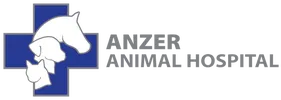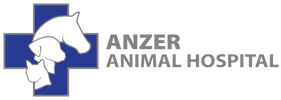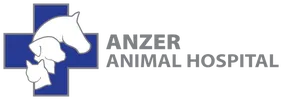Horse hooves are complex structures that tell you a lot about your horse’s health and wellbeing. They’re also susceptible to many problems. Here are a few hoof basics as well as some of the major hoof issues your horse faces. Anatomy If you look at the bottom of a horse’s hoof, you’ll see two
Read moreCall Us Today!
Call Us Today!
-
Hoof Health and Care
Category: Equine, Living With Your Pet, Providing Care
-
Hives and Skin Allergies
Category: Equine, Pet Health, Chronic Conditions
The skin is the largest organ in the body and serves many important functions. In spite of its usefulness, a horse’s skin can also develop redness, itchiness or hives in response to various substances in the environment. These kinds of allergic reactions can be caused by things eaten, inhaled or touched
Read more -
Hernias
Category: Equine, Pet Health, Chronic Conditions
Hernias A hernia is a tear in the body wall of a horse that allows the internal organs to push through to a place where they don’t belong. There are several types of hernias. They can affect horses of any age or breed. Horses may have a defect at birth (congenital) that increases the risk of a hernia,
Read more -
Headshaking
Category: Equine, Pet Health, Chronic Conditions
Head shaking shows up in horses as uncontrollable shaking, jerking or flicking of the head, with no obvious physical irritation causing the condition. While some cases may be mild, head shaking can be severe enough to make a horse dangerous or unsuitable for riding. Other symptoms that may occur alongside
Read more -
Fractures
Category: Equine, Pet Health, Orthopedics
Fractures, or breaks, can potentially occur in any bone in a horse’s body. Some types of fractures, however, are more common, especially among very athletic horses, such as racehorses. Causes of Fractures Fractures fall into several categories: An incomplete fracture (also known a “green stick,”
Read more -
Food and Nutrition
Category: Equine, Living With Your Pet, Providing Care
From your point of view, as the caregiver, it is important to familiarize your horse with being handled-and of course, it is always gratifying to have a horse with a clean and smart appearance. Feeding your horse correctly is a vital element of effective horse care. A horse's natural grazing pattern
Read more -
Exerional Rhabdomyolysis (Tying-Up)
Category: Equine, Pet Health, Diseases and Viruses
Horse lovers have observed this frightening disease for centuries. It’s been called azoturia, tying-up, cording up, holiday disease and Monday morning disease; the last two names reflect that symptoms are sometimes observed after hard work followed by a period of rest. In the last couple of decades,
Read more -
Examining Your Horse
Category: Equine, Choosing Your Pet, Horses
Even if you fall in love with the horse, do not buy it before the animal has been thoroughly examined by a veterinarian with experience in performing purchase examinations. Long-time horse owners almost always have a veterinarian examine any animal before purchase and first-time owners should certainly
Read more
Testimonials
Newsletter Signup
Sign up for more articles
Contact Us
We look forward to hearing from you
Office Hours
9:00 AM - 6:00 pm
9:00 AM - 6:00 PM
9:00 AM - 6:00 PM
9:00 AM - 6:00 PM
9:00 AM - 6:00 PM
9:00 AM - 2:00 PM
Closed
Location
Anzer Animal Hospital
14471 Southern Blvd
Loxahatchee Groves, FL 33470, US


